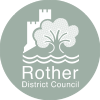Breeding of dog is either or both of the following:
- breeding three or more litters of puppies in any 12-month period (unless you can show that none of the puppies have been sold);
- breeding dogs and advertising a business of selling dogs.
If you breed dogs within the Rother district you will need a licence from us. The licence will specify the number of dogs which may be used in relation to the licensable activity; general and specific conditions will be attached to the licence.
Eligibility criteria
Breeding of dogs is licensed under The Animal Welfare (Licensing of Activities Involving Animals) (England) Regulations 2018
In order to apply for a licence you must not have been disqualified from doing so under any legislation relating to animal welfare. You must also have not had a licence revoked under any legislation relating to animal welfare. For more information please read the Animal Welfare Act Regulations 2018 Eligibility Criteria
DEFRA have produced Guidance notes for breeding of dogs. If you are unsure if you need a licence or not, you should pay particular interest to the Introduction section, which includes advice about the business test and ‘in scope’ and ‘out of scope’ licensing criteria.
The guidance has recently changed, and it is therefore important that you read the update Gov UK guidance notes at: Dog breeding licensing: statutory guidance for local authorities.
You must be able to meet and maintain a number of conditions. The conditions are available to download. You must read these thoroughly before applying to make sure your business can comply:
Download the Breeding Dogs Conditions
Do I need planning permission?
We strongly recommend that you contact Planning and check whether the licensable activity at the premises needs planning permission or not.
Application process and fee
The fee will be £260 (£275 from 1st April 2025) (or £252 (£265 from 1st April 2025) processing fee plus £25 upon the issue of the licence) plus any actual vet costs if a veterinary inspection is required.
The costs for this veterinary inspection are payable by the applicant/licence holder. This applies to veterinary inspections required during the application process and during the licence period.
A separate application (plus application fee) is required for each additional licensable activity.
How to apply
If you have read the guidance notes and the conditions available in the Eligibility Criteria section and feel that you can meet the required standards, then you can begin the application process.
Please download our Breeding Dogs Application
You will also need to make payment by visiting our Make a Payment page. If you are able to scan your completed application form in there is an opportunity for you to upload it when you pay. If you would prefer to post your application to us, we will need you to write your receipt number on your application form. You will be emailed your receipt number as soon as you pay and there is a space for this on the application form.
Once we receive your application we will send you an acknowledgement and you will be contacted to arrange an appointment for inspection in due course.
Inspections and Star Ratings
An inspection will be carried out before the licence is granted. The inspector will be looking to make sure the applicant has the following:
- Specialist knowledge in the species that they are caring for and a clear understanding of its needs and welfare. This would include the animals’ mental and physical health, feeding and knowledge of environmental enrichment. The applicant should be able to demonstrate that they have researched and followed expert guidance in order to carry out their role.
- Comprehensive records that contain all the information required by the conditions that apply to their particular activities.
- An understanding of risks involved in caring for the animal, including an extensive risk assessment and written policies and procedures that are reviewed regularly. These documents should be available for the Inspector to examine.
- Training procedures in place to make sure staff know what is expected of them, and clear evidence of good supervision of staff.
- The premises itself will also be assessed so we can be sure the licence holder can meet the conditions relating to the physical environment in which the animals will be kept.
Based on the information provided and the inspection, we will assess the risk rating and award a star rating. This will determine the length of the licence period. Low-risk businesses can attain up to five stars, and premises that have been assessed as higher risk can be awarded up to four stars. If the applicant is not satisfied with the decision, they can make improvements to address highlighted issues, and ask for a re-inspection (fees apply).
Please note: to achieve higher standards all breeding stock or puppies must be recorded in the UK with a registration organisation compliant with BSI 9001, which must make available record of the parent or lineage including coefficient of inbreeding and record of health screening test results.
This condition cannot be met in the case of cross breeds and therefore cannot be registered. The Animal Welfare (Licensing of Activities Involving Animals) (England) Regulations 2018, Schedule 6 (5) states that “no dog may be kept for breeding if it can reasonably be expected, on the basis of its genotype, phenotype or state of health that breeding from it could have a detrimental effect on its health or welfare or the health or welfare of its offspring.
DNA tests are relevant to the parent breeds and genetic testing for cross breeds and you must take advice from your own vet.
For example, these tests are relevant only to the breeds of labradors, poodles and cocker spaniels:
- Familial Nephropathy (FN)
- Gall Bladder Mucocoeles (GBM)
- Von Willebrands Disease Type I (VWF)
- Glangliosidosis GM2 Poodle Variant (HEXB)
- Neonatal encephalopathy with seizures NENS (AFT2)
- Osteochondrodysplasia Poodle Variant (SLC13A1)
Full details of the star rating system procedure can be found on the Gov.uk animal activities licence guidance for local authorities.
Premises with lower star ratings
Existing businesses may be awarded a lower score if there are a number of minor failings but these cannot compromise the welfare of the animals. If animal welfare is being compromised then a licence will not be granted or renewed and licences already in place will be revoked or suspended. New businesses will be assessed as slightly higher risk because obviously there is no history of good practice that can be considered.
If you wish to dispute your star rating you should discuss this informally first with the inspecting officer. If you are not satisfied then please complete a Star Rating Appeals Form and return it to us at the address below.
Requests for re-grading
The fee for requests for re-grading is £100 (£105 from 1st April 2024).
You will need to complete a Star Rating Request for Re-grading Form and return it to us at the address below. You can make your payment by visiting our Make a Payment page.
Tacit consent
Tacit consent does not apply to breeding of dogs.
It is in the public interest that we process your application before it can be granted. If you have not heard from us within a reasonable period, please contact us.
Failed application redress
Please contact us in the first instance.
Any applicant who is refused a licence can appeal to the First-tier Tribunal.
Consumer complaint
We would always advise that in the event of a complaint the first contact is made with the trader by you – preferably in the form a letter (with proof of delivery). If that has not worked Gov.uk can offer advice on Consumer Rights

